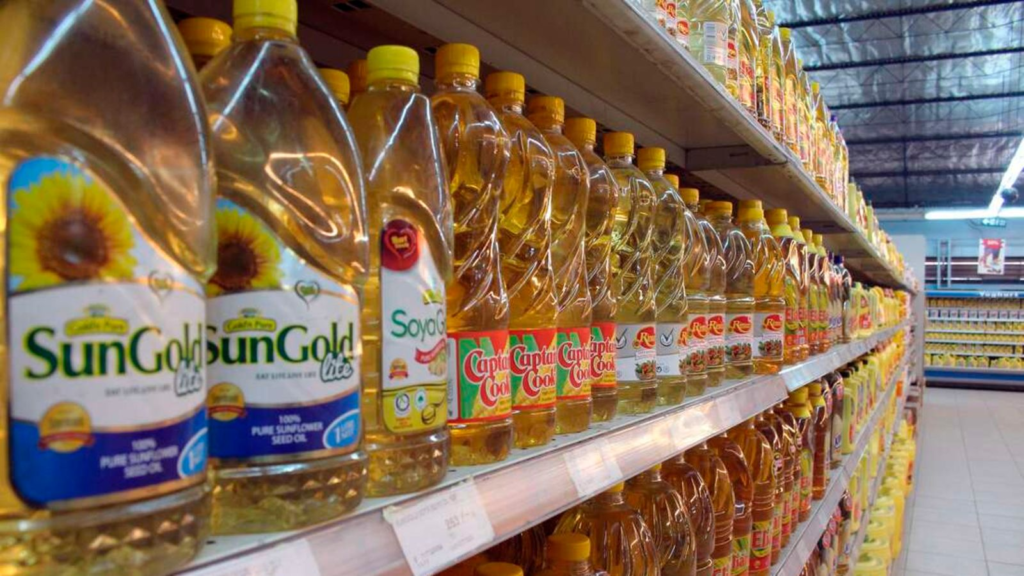
BY DERRICK WANJALA
Nairobi, Kenya – The Edible Oil Manufacturers Association of Kenya is sounding the alarm over an impending economic crisis and potential job losses resulting from the new 10 percent import duty on crude oil.

Addressing the press in Nairobi, former Mandera Senator Billow Kerrow, along with other members of the Edible Oil Manufacturing Umbrella Body, emphasized the severe impact of the duty on production costs. “The significant increase in the price of cooking oil will affect millions of Kenyan consumers, who will now have to endure a staggering 36% taxation on vegetable oil,” said Kerrow.
The association warned that the higher production costs could lead to widespread job losses within the industry. Many manufacturers may be forced to cut down on their workforce or even shut down operations if the financial strain becomes unbearable. This would further exacerbate the country’s already high unemployment rates.
Additionally, the ripple effect of these price hikes could have broader economic implications. With consumers facing increased prices for a staple product, the overall cost of living is expected to rise, putting additional pressure on already strained household budgets across the nation.

Kerrow highlighted that the import duty is only the latest in a series of challenges facing the edible oil industry. Over the past few years, manufacturers have been grappling with fluctuating global oil prices, supply chain disruptions, and stringent regulatory requirements.
In light of these challenges, the association is calling on the government to reconsider the import duty and explore alternative measures to support the industry. “We urge the government to engage with stakeholders and find a balanced solution that safeguards both the industry and the consumers,” Kerrow added.
The impact on small and medium-sized enterprises (SMEs) in the edible oil sector is particularly concerning. SMEs, which make up a significant portion of the industry, may not have the financial resilience to absorb the increased costs, leading to potential business closures and job losses.
Consumers are also feeling the pinch, with many already struggling to make ends meet amid rising living costs. The additional taxation on cooking oil is expected to worsen the situation, forcing households to cut back on essential expenses or seek cheaper, lower-quality alternatives.
The association noted that the higher prices could also lead to a decrease in overall demand for cooking oil. This, in turn, could affect the entire supply chain, from farmers who produce oil seeds to retailers who sell the final product.
Economists have weighed in on the issue, warning that the import duty could have unintended consequences. They argue that while the duty is intended to protect local industries, it may end up doing more harm than good by driving up prices and reducing competitiveness.
The association is also concerned about the potential impact on public health. Higher prices may lead consumers to opt for less healthy alternatives, which could have long-term health implications for the population.
In response to the association’s warnings, the government has stated that the import duty is necessary to boost revenue and support local industries. However, industry stakeholders argue that the policy needs to be carefully calibrated to avoid negative economic repercussions.
The situation has sparked a broader debate about the balance between revenue generation and economic growth. Policymakers are being urged to take a holistic approach that considers the needs of both businesses and consumers.
As the situation unfolds, the association is planning further engagements with government officials and industry stakeholders to find a sustainable solution. “We are committed to working together to ensure the long-term viability of the edible oil industry,” said Kerrow.

The association is also exploring potential avenues for reducing production costs, such as investing in more efficient technologies and seeking new sources of raw materials.
In the meantime, consumers are being advised to brace for higher prices and potential shortages. The association is urging the public to remain patient and supportive as the industry navigates these challenging times.
With the economic implications becoming increasingly clear, there is a growing sense of urgency to address the issue. Industry experts are warning that failure to act swiftly could result in long-term damage to the economy.
The association’s warning comes at a critical time, as the country is already facing economic pressures from various fronts, including inflation, currency fluctuations, and external debt.
Ultimately, the outcome of this situation will depend on the actions taken by both the government and the industry. There is a shared hope that a collaborative approach will lead to a resolution that benefits all stakeholders.
For now, the Edible Oil Manufacturers Association of Kenya remains steadfast in its advocacy, determined to protect the interests of both the industry and the millions of consumers who rely on affordable cooking oil.






